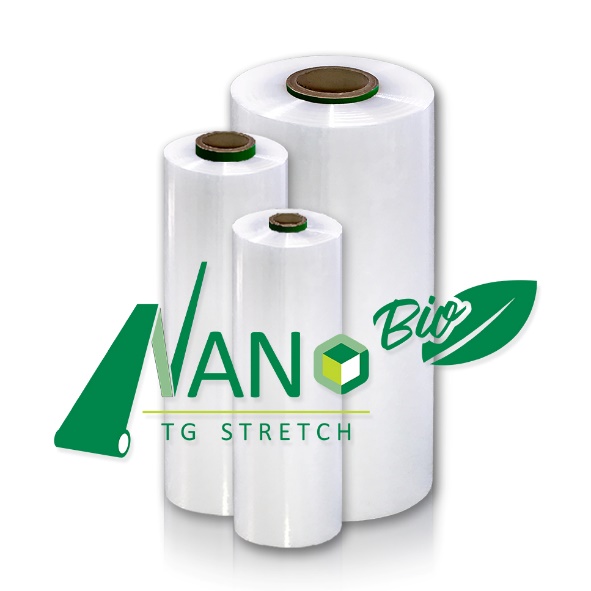
US-based materials science specialist Dow and Malaysia-based plastic stretch cling film producer Thong Guan has introduced a new range of bio-based polyethylene (bio-PE) cling film for Asia Pacific region.
According to Dow, this marks a milestone in the region’s commercialisation of a plastics offering made from renewable feedstock, enabling industry providers to produce high-performance plastics while reducing carbon footprint.
In a joint effort, Thong Guan will be using Dow’s bio-based resin derived from renewable feedstock. The feedstock comes from tall oil, a residue of paper production, from sustainably managed forests.
Unlike other alternative renewable feedstocks, it does not compete with the human food chain, and no extra land is required for its production, Dow said in a statement. Dow uses a mass balance approach, which encourages the use of renewable feedstock, by supporting sustainable systems for producing plastic. This approach enables the industry to transition away from its dependency on fossil fuels as a feedstock.
Nano Bio, the new range of stretch cling films by Thong Guan, will be made using Dow’s linear low-density polyethylene, ELITE 5230GC R Enhanced Polyethylene Resins. Without compromising on quality, the new bio-based stretch cling films will support brand owners in addressing Asia Pacific’s increasing demand for renewable plastics, Dow maintained.
“To achieve our new sustainability targets, Dow is committed to implementing and advancing technologies to manufacture products using fewer resources, thereby helping our customers to reduce their carbon footprint. Introducing Dow’s first bio-based polyethylene in Asia Pacific based on renewable feedstock is an important step in this direction,” said Bambang Candra, Asia Pacific commercial vice president at Dow Packaging and Specialty Plastics.
Candra added: “In addition, as a part of the new sustainability targets, Dow is also committed to stopping the leakage of plastic waste into the environment by enabling 1 million metric tonnes of plastic to be collected, reused or recycled by 2030 and closing the circular economy loop by having 100% of its products sold into packaging applications be reusable or recyclable by 2035.”
The Nano Bio range of stretch cling film is produced by state-of-the-art nanotechnology, downgauged with increased strength, flexibility, and durability. In addition to being environmentally friendly, this optimised packaging ensures pallet load stability and curtails damages and accidents during transportation.
“This is a landmark moment for Dow. Introducing bio-based resins for the first time in Asia Pacific, our fastest growing market, is key in advancing a circular economy. We are proud to embark on this journey with our long-term partner, Thong Guan, and further both our sustainability offerings in order to meet our environmental goals,” Eunice Ch’ng, senior marketing manager at Dow Packaging and Specialty Plastics, Asia Pacific.
“We are committed to preserving the environment and resources for the future world. The continuous collaboration with Dow illustrates our dedication to offering renewable products and promoting sustainability,” said Dato’ Ang Poon Chuan, managing director at Thong Guan Industries. “With Dow’s bio-based resins, our Nano Bio reduces the use of plastics while maintaining the same high-performance, thus meeting our customers’ business and sustainability needs.
David Ang, sales and marketing general manager at Thong Guan Industries said: “Sustainability is not just a buzz word. At Thong Guan, our commitment is not solely on our products, but also in our processes and daily consumptions. It is our unequivocal commitment to protect our home, reduce carbon footprint, and innovate our way towards an ecological balance for our future generations.”
Dow’s bio-based polyethylene portfolio is produced using bio-naphtha from tall oil, which is a by-product of paper pulp production. This new supply chain from bio-feedstocks enables a significantly lower carbon footprint compared to standard fossil-derived PE resins. In addition, our PE resins production is certified by ISCC (International Sustainability & Carbon Certification) based on a mass balance approach. This approach helps industries become more sustainable by supporting the sourcing of sustainable ingredients within complex manufacturing or production systems, meaning all steps meet traceability criteria.
 If you were interested in this bioeconomy story, you may also be interested in the ones below.
If you were interested in this bioeconomy story, you may also be interested in the ones below.
Read: Dow launches plastic waste collection and recycling project in Nigeria
Read: Dow unveils post-consumer recycled resins as brand owner demand grows
Read: Conventional plastic industry is using ‘Coronavirus as an excuse’ to revive old habits
Read: Ineos to produce bio-based PVC from pulp production by-product.
Read: Neste and Remondis link up to develop chemical recycling of plastic waste.
Read: Ineos Styrolution and Agilyx advance US chemical recycling facility.
Read: Braskem starts trials on chemical recycling of plastic waste.
Read: UPM to invest in new biorefinery to produce wood-based biochemicals.





